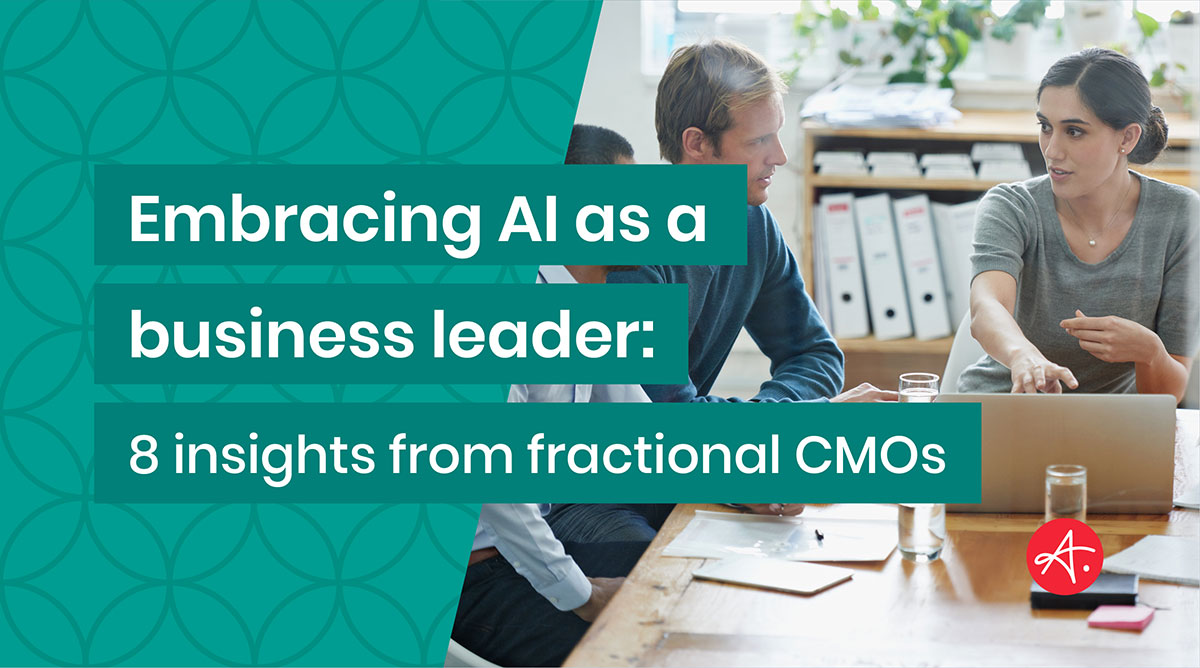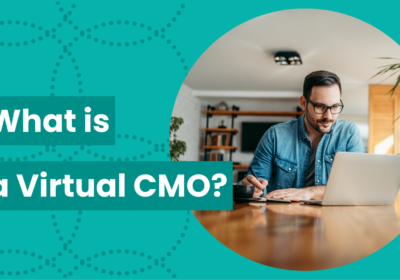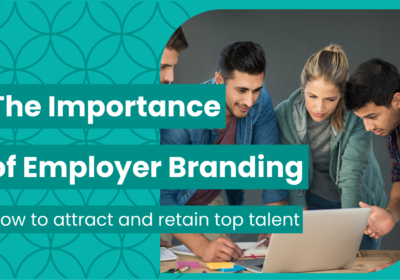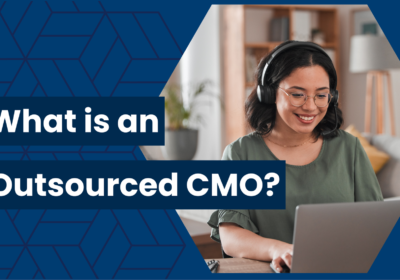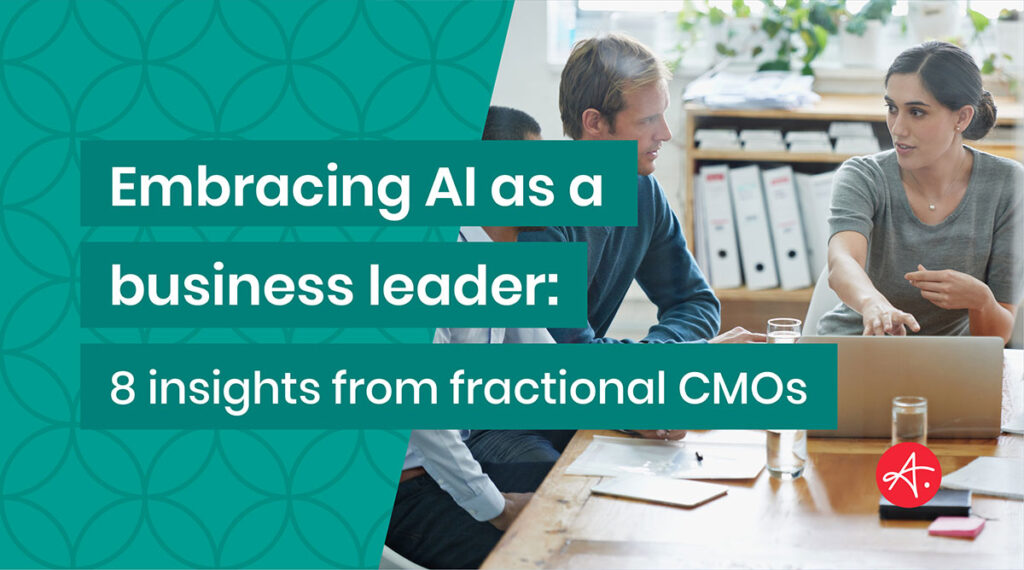
Even though AI has been around for some time, everything changed when OpenAI released ChatGPT to the public in late 2022. Now, speculation abounds about the implications of AI: is it a friend or foe to businesses and their employees? Can AI accelerate business growth? What are its benefits? Its risks? How do organizations balance the risks and benefits of AI and use it responsibly and strategically to support their growth?
We dove into these questions and more in a recent webinar we hosted with three of our Authentic Fractional CMOs™, Ruth Glaser, John Ryan, and Peter Zaballos. We addressed high-level concerns, like AI risk, and offered tangible insights for growing businesses. In this post, we distill the eight key insights from the webinar and separate hype from the practical advice you can leverage now.



- We’re still in the early days of AI.
Three factors have recently converged to rapidly improve the AI tools available to the everyday person: the amount of training data the models have been able to access has grown exponentially (helping improve the accuracy of the model’s output), large language models (LLMS) have improved in their mathematical quality, and the hardware used to power these models has become much more affordable. But despite these improvements and the undeniable impact that AI will have on our lives, we are still in the early days of the technology. In fact, according to Ruth, it feels reminiscent of the early days of the Internet, when the everyday layperson could easily explore the new tools available at their fingertips:
“For those of us who were around when the Internet became ubiquitous for the first time, when anybody could create a website in HTML, you’d have a rainbow of colors, flashing fonts, and things like that. It feels very much like we’re in that same infancy stage of people applying AI in different ways. We’re starting to learn that this is a really cool tool and discovering how to use it. And we’re going to start to see it being applied more visibly in our everyday tools and work,” said Ruth.
We can expect the technology to improve drastically over the next four to five years as AI researchers improve the accuracy of the models and people find the best use cases for it.
- AI is not going to take your job.
The pace of technological advancement in AI is astounding. After all, GPT-4 is estimated to have over 1 trillion parameters, which is six times larger than GPT-3. Parameters matter because they influence how complex and accurate the model’s capabilities and performance are. Understandably, this rate of technological advancement brings some anxiety about what AI means for our jobs. Could it replace us?
While we believe that the professionals who embrace AI will be better positioned for career success, our CMOs agreed that AI will not take your job. Rather, AI is a tool that can act as “decision support for you,” according to John. It can’t, shouldn’t, and won’t make decisions for you. Peter added to this by sharing:
“While it’s true that LLMs and AI, in general, will fundamentally reshape how we do our jobs, it’s not perfect by any means. AI can be an incredibly productive tool for you, but it doesn’t replace you. It’s just going to change how you do your work,” Peter said.
- How you ask questions makes all the difference.
If you’ve read anything about AI, you’ve likely heard a lot about prompt engineering. Prompt engineering is how you ask a model questions — including the words, verbs, and structure you use — to get the output (answer) that aligns with what you’re trying to get the model to do. Some companies are even hiring prompt engineers to train models to deliver more accurate responses.
And while we’re not advocating that you become a prompt engineer yourself (some even suspect that the role might be fleeting), it is critical to understand the importance of creating the right inputs to get the output you desire from a model:
“To get quality results from AI, you have to give it a very specific set of directions. Prompt engineering is about giving it the right words and structure to get the right results. It also typically requires additional prompts to get what you need. Marketers need to get really good at creating prompts. Fortunately, there’s been an explosion in educational content about how to engineer prompts,” Ruth shared.
Elaborating on this point, John emphasized that what will set effective marketers and business leaders apart from each other in the age of AI is the same as what has always been important: asking good questions.
“What we want to get really good at is asking the best question we can, whether we’re talking to AI or talking to a colleague, to get the best answer we can. And those who ask better questions get better answers,” John said.
- The best way to learn is to dive in.
There’s a lot of noise in the market right now about AI. So much so that it can be difficult to know where to focus and where to start. Our advice? Just dive in and begin testing the tools available. Not only will it be the most effective way to learn, but it is also important for your and your employees’ career development.
“As a manager, you should encourage your team to learn the tools. AI will take professional development up a level of importance,” said Peter.
Ruth agreed, sharing: “AI, particularly in marketing, is really useful. A good way to level up your team’s skill set is to just dive in and start using it. Play around with the tool and encourage your team to do the same. Many tools are free or have free trials. Create an environment of curiosity and learning and opportunities for people to share. If you’re a leader, you could even set aside a specific time for people to share their learnings.”
Here are some example prompts that Peter shared that could help you get started:
- Write a job description for a digital marketing content writer.
- Summarize this article: [paste article copy]
- Who are [X company’s] competitors?
- Being adaptable and nimble will make all the difference.
Adaptability has always been a prerequisite for an effective marketer. While AI might be the most significant technological advancement in our lifetime, modern marketing has been marked by constant evolution. How well you succeed in this new AI-influenced era will depend on how adaptable and nimble you can be to these AI technologies.
Peter elaborated on this sentiment by sharing:
“In a lot of respects, nothing has changed in marketing. Marketing today is a matter of constantly evaluating new technologies and approaches, and using data to tell you what you were doing before is no longer effective. By using these AI tools, you’ll become much more capable, much more quickly. Effective marketers are the ones that go, ‘Okay, well, it’s a new thing, and I better figure out how to do it,” Peter shared.
John further emphasized this point: “You have to get on it. You’re going to have AI embedded in the martech and sales tech you’re using. It’s going to be pervasive. Ask yourself: What is my adaptability quotient? Can I pivot as the technologies change? If you have a high adaptability quotient, it can really help your career.”
- You must approach AI with a healthy dose of skepticism.
As promising as AI is to make our lives easier and our jobs more efficient, we cannot mindlessly trust the outputs of AI models. Not only do large language models like ChatGPT sometimes give inaccurate results, but they even sometimes make up their sources or citations altogether.
A notable example of this is of two lawyers who used ChatGPT to find court citations to support a legal argument. It didn’t take long for the court to realize the lawyers had used ChatGPT because the court cases they cited were fake. If you are going to use ChatGPT or other AI-powered chatbots to support activities like content creation, it’s critical that you have a layer of human review, fact checking, and editing woven into your process.
“It can save you a ton of time, but it does not replace your judgment or experience. You can’t just mail the results in without scrutinizing them and ensuring they’re what you need,” said Peter.
Ruth expanded on this, noting how shaky AI is when you ask it to do math: “AI can’t count. I’ve requested it to produce a certain number of words on certain topics, and it will sometimes be way off. It will also make things up; you have to double check. It’s still at that stage of not being 100% accurate all of the time.”
- AI empowers small businesses.
In many ways, AI helps level the playing field for smaller businesses trying to compete with larger, better-resourced organizations. Jennifer Zick, Authentic’s CEO, shared one reason for this: “Those who are nimble enough to make the change faster are really going to gain a competitive edge. The challenge for larger organizations is to try to turn the Titanic.”
Smaller organizations are inherently more nimble because they have fewer layers to enact change into. Small companies with a healthy appetite for innovation and change can embrace AI more quickly to embed it into their businesses in ways that support growth.
Ruth expanded on this point by sharing how AI can reduce the need for high headcount, helping smaller businesses who can’t afford to hire as many resources:
“The other thing that AI does is really empower smaller businesses and teams to start doing things that previously would’ve required a lot of expenditure and headcount,” said Ruth.
- There are still a lot of unknowns.
With as much promise and potential as AI brings, it has also created anxiety and fear. This is because there are still a lot of unknowns about the technology, including how quickly it will advance, how it will be regulated, and how we will combat AI bias, keep it from spreading misinformation, keep it out of the hands of bad actors, protect artists and creators, and more. Internally at your organizations, it may make good sense to develop your own point of view about AI and how you will allow (or not allow) your employees to use it.
“We’re in the wild west of AI right now because there’s not much government regulation. I think there will be regulation as we see how nefarious some of the applications can be. Some companies have developed policies about being transparent when they use AI. I think it’s wise to think about developing policies for how you want to use it internally and how you want to disclose it publicly,” shared Ruth.
John elaborated further on the need for discretion with AI: “We need to create ethics around AI and understand the power of it. We need to be careful — as we need to be with everything with great power — because it can cause harm in the wrong hands. We have to be in charge and pull the plug if necessary.”
AI will transform our work in exciting ways
The AI tools now available to all of us are impressive, exciting, and bound to change how we work and live. And while the technology holds great potential, we must approach it cautiously. We encourage you to start exploring what tools might support your internal processes, looking for opportunities where you could benefit from greater efficiency. To conclude, we want to share a quote from each of our webinar panelists, to sum up all we have to look forward to:
Ruth: “We can’t even imagine how this is going to transform our workplace. Even the things that you see as examples now, people are so smart and amazing at getting the tool to do incredible things. It’s going to be really exciting. It frees us up to do other things, take some of the repetitive tasks off our plates that can and should be automated to focus on higher-level projects. It’s all very exciting.”
Peter: “I’ve always said there’s never been a better time to be in marketing because of data and technology. It’s like that, but on steroids. There’s going to be a whole new world of tools and effectiveness that we’re going to be jumping on.”
John: “We’ve been talking for the last 20 years about digital natives; now we’re going to be talking about AI natives.”
Is your business struggling to navigate the rapid change in marketing? Reach out to us to discuss how an Authentic Fractional CMO™ could help you build a sustainable marketing team equipped for long-term success.


